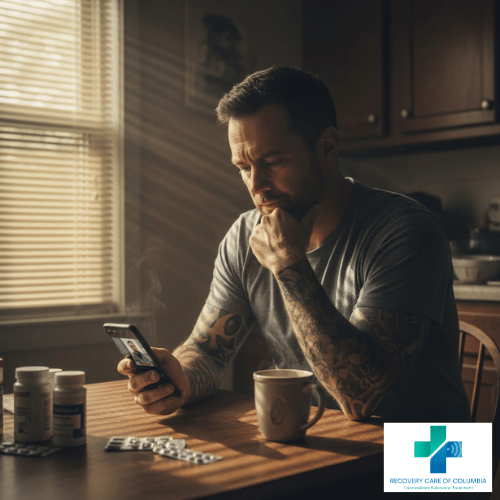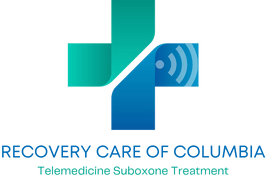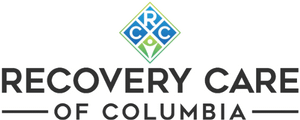Columbia Suboxone Clinic Blog
How the Opioid Epidemic Was Manufactured – What You Need to Know

The opioid epidemic was manufactured—not by accident, but through decades of aggressive marketing, misinformation, and systemic failures. While millions of Americans suffer from addiction today, understanding how this crisis began is key to reclaiming control and finding lasting recovery.
At Recovery Care of Columbia, we’ve helped over 1,000 Tennesseans rebuild their lives through accessible, virtual Suboxone treatment. Our mission is to bring compassion and truth to an issue that has taken too many lives.
The Manufactured Origins of the Opioid Epidemic
In the 1990s, major pharmaceutical companies claimed that prescription opioids like OxyContin™ were safe and had a “low risk” of addiction. This was false.
Doctors were encouraged to prescribe opioids for almost any kind of pain, while marketing campaigns downplayed the dangers. According to the U.S. Food and Drug Administration (FDA.gov) and Centers for Disease Control and Prevention (CDC.gov), this led to widespread misuse and dependency.
By the time regulators acted, millions were already hooked. Communities from Oak Hill to Orme and Piperton were flooded with painkillers—setting the stage for the second wave of the crisis: heroin and fentanyl addiction.
How the Opioid Epidemic Evolved
1. The Prescription Boom
Doctors began prescribing powerful opioids—hydrocodone, oxycodone, morphine, methadone, and codeine—at alarming rates. Pharmaceutical sales reps promoted these medications as “safe for chronic pain,” often providing incentives to prescribers.
2. The Rise of Dependence
Patients quickly developed tolerance, needing higher doses to achieve the same relief. When prescriptions ran out, many turned to street drugs like heroin or fentanyl to avoid withdrawal.
3. The Overdose Crisis
According to SAMHSA.gov, more than 80,000 Americans die each year from opioid overdoses. Tennessee ranks among the hardest-hit states, with families in Columbia, Murfreesboro, and Nashville losing loved ones daily.
4. A Shift Toward Recovery and Accountability
In recent years, lawsuits against manufacturers like Purdue Pharma exposed how corporate greed fueled addiction. Meanwhile, clinics like Recovery Care of Columbia stepped forward with a new model of care—telemedicine-based Medication-Assisted Treatment (TeleMAT)—making help accessible to everyone, no matter where they live.
Why Understanding This Matters
The opioid epidemic didn’t begin with “bad choices.” It began with bad information. For many, addiction started after surgery, an injury, or a doctor’s prescription. Understanding how this epidemic was manufactured helps break the shame that keeps people from seeking help.
Addiction is not a moral failure—it’s a chronic medical condition. With modern treatment, recovery is not only possible but sustainable.
The Solution: Virtual Suboxone Treatment in Tennessee
At Recovery Care of Columbia, we offer safe, evidence-based treatment using Suboxone (buprenorphine/naloxone)—an FDA-approved medication that reduces withdrawal and cravings while allowing patients to live normal lives.
Benefits of Our TeleMAT Program:
-
100% virtual appointments—no clinic visits required
-
Same-day Suboxone prescriptions, sent to your pharmacy or delivered overnight
-
Affordable care, covered by TennCare Medicaid, commercial insurance, or self-pay
-
Master’s-level counseling and ongoing recovery support
-
Compassionate clinicians who understand what addiction feels like—many in active recovery themselves
We are proud to be the first clinic in Tennessee to receive a virtual medical license for addiction treatment.
Learn more about how our program works:
The Deadly Grip of Fentanyl in Tennessee
Today’s epidemic looks different. Prescription opioids have been replaced by illicit fentanyl, a synthetic opioid 50 times stronger than heroin. The DEA.gov warns that fentanyl is now found in counterfeit pills and street drugs throughout Tennessee. Even a few grains can cause a fatal overdose.
That’s why treatment accessibility matters more than ever. Whether you live in East Tennessee, Middle Tennessee, or West Tennessee in rural towns like Ridgetop or Samburg, our virtual Suboxone doctors can help you begin recovery safely from home.
The Human Side of the Epidemic
Behind every statistic is a person—a parent, a son, a daughter—who never meant to become addicted.
At Recovery Care of Columbia, we see the humanity behind addiction. We’ve helped:
-
Working parents who hid their struggle from coworkers
-
Individuals transitioning from jail or probation
-
People who started using after an injury or surgery
-
Tennesseans tired of living in fear of withdrawal
Our TeleMAT program gives every patient a chance to start over, supported by real clinicians who care deeply about their recovery.
Meet our team and see what sets our compassionate approach apart.
Frequently Asked Questions
Q: How did the opioid epidemic start?
A: It began in the 1990s when pharmaceutical companies falsely marketed opioids as safe, leading to mass overprescription and dependence.
Q: Why are opioids so addictive?
A: Opioids flood the brain’s reward system, creating a powerful sense of euphoria. Over time, the brain becomes dependent, and withdrawal symptoms make quitting difficult without medical help.
Q: Is Suboxone safe?
A: Yes. Suboxone is FDA-approved and endorsed by the DEA and SAMHSA as one of the most effective treatments for opioid use disorder.
Q: Do I have to visit a clinic in person?
A: No. Our program is fully virtual. Patients meet with providers by phone or video, and prescriptions are sent electronically.
Q: How quickly can I start?
A: Most new patients receive a same-day appointment and begin treatment immediately.
Q: What if I can’t afford treatment?
A: We offer sliding-scale payment options and accept most insurances, including TennCare Medicaid and commercial plans.
Moving Forward: Hope and Healing
The opioid epidemic was manufactured, but recovery is human-made. It begins with compassion, knowledge, and action.
Whether you’ve been struggling for years or just realized you need help, we’re here to make recovery easier, more affordable, and entirely virtual.
Call or text (931) 548-3062, or message us securely on the Spruce Health app to start same-day Suboxone treatment.
You deserve freedom from addiction—and we can help you find it.
Your New Life is Just a Click Away
- We accept ALL TennCare Medicaid
- We accept most commercial/employer insurance plans
- Get addiction treatment by making biweekly or monthly payments using our self-pay plan
- Are you a returning patient? Restart your treatment
- No insurance? Low income? Apply for our Sliding-Scale Program
- We accept most commercial/employee health plans, such as BCBS, Cigna, Ambetter, and United Healthcare, as well as all TennCare Medicaid insurance: Amerigroup Community Care, BlueCare, United Healthcare Community Plan, and Wellpoint Community Care.
- View all insurance plans we accept and self-pay payment pricing
- Learn more about Kratom & 7-OH Addiction Treatment
External Resources
- Substance Abuse and Mental Health Services Administration (SAMHSA)
- National Center on Substance Abuse and Child Welfare
- Centers for Disease Control and Prevention | CDC.gov
- Locate a Peer Recovery Support Specialist
- DEA.gov – Opioid Addiction-Related Articles
- National Institute on Drug Abuse



